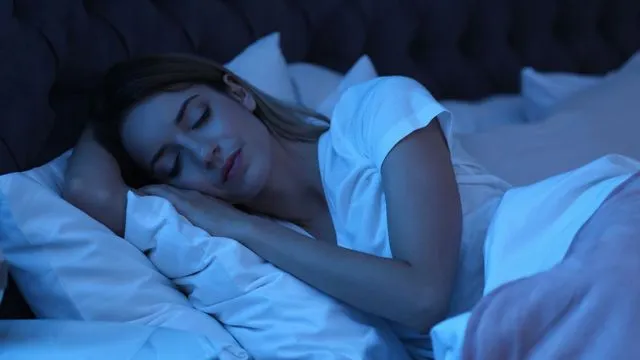- By Prerna Targhotra
- Fri, 24 May 2024 01:40 PM (IST)
- Source:JND
The most important component of a healthy lifestyle is getting enough sleep. However, a variety of circumstances can impair sleep and result in sleep deprivation. One practical strategy for improving the quality of your sleep is to sleep in the dark. Numerous studies have demonstrated that sleeping in a dimly lit room is more calming than sleeping in a brightly lit room. A gloomy atmosphere can have a relaxing impact on the mind, which helps to reduce tension and anxiety. Here are some unknown benefits of sleeping in the dark for overall well-being.
Benefits Of Sleeping In Dark Room
Better Sleep
The CDC states that your circadian clock interprets light as a cue to wake up and darkness as a cue to go to sleep. If you want to sleep better at night, darken your bedroom. Two hours before going to bed, avoid strong light as this will facilitate sleep.
Mental Health
There are some advantages to sleeping in the dark, such as improved mental health. Getting 7-8 hours of unbroken sleep gives you a boost of energy, improves your mood, and increases your productivity, all of which contribute to the proper management of daily stress levels.
ALSO READ: Practise These Exercise Tips For Your Workout Regime In Summer Months
Reduces Risk Of Sleep Disorders
Benefits Of Sleeping In Dark (Image Credits: Canva)
Sleep-wake disorders come in a variety of forms, with insomnia being the most prevalent. Other sleep-wake disorders include restless legs syndrome, narcolepsy, parasomnias, and obstructive sleep apnea. Sleep issues are associated with emotional and physical issues, according to the American Psychiatric Association. The likelihood of developing sleep disorders considerably decreases when you get a restful night's sleep.
Hormone Regulation
One hormone that affects circadian rhythms, melatonin, is secreted less when exposed to light. A person's melatonin secretion and circadian rhythm can be disrupted by even low light levels.
Reduces Anxiety
Anxiety symptoms can be alleviated by sleeping in a dark or dimly lit room. Chronic nighttime exposure to low light during pre-adolescent development, according to the National Institutes of Health (NIH), causes anxiety and fear-like behaviour in adulthood.
ALSO READ: Can Chia Seeds Help In Blood Sugar Control? Here’s Why You Should Include Them In Your Meals
(Disclaimer: This article is for informational purposes only. It is not a substitute for professional advice, diagnosis or treatment.)

